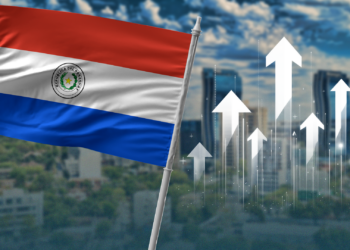In 2021, shortly after taking the reins of power, Democrats set about making Washington, D.C., and Puerto Rico states.
This is deeply flawed for a number of reasons that go beyond admitting two states that would reliably have four Democratic senators and doing it by majority vote by nuking the Senate filibuster. Washington, D.C., presents the clearest issue; it’s a company town that makes nothing but legislation, which it can’t export.
It has no industry and no permanent tax base, would be the smallest state by far, and would still at the mercy of federal funding long into the foreseeable future. Moreover, there’s the constitutional aspect, given that it owes its existence as a federal district under the control of Congress to Article I of the Constitution.
Puerto Rico, however, presents more of a conundrum. It’s an island of considerable size with at least one major city in San Juan, a total population of over 3 million, industries of its own, and a referendum vote for statehood. What’s the argument against letting it in, aside from creating a political imbalance?
The most salient of these is that the metaphorical workplace counter that reads “Years Without a Major Political, Economic, or Infrastructural Crisis in Puerto Rico” should ideally be well into the double digits before statehood is considered for the island territory — and it’s still reliably stuck at zero most years.
On Wednesday night, it got set back to zero again thanks to another blackout that left literally every person who didn’t have a generator without power on the island for reasons that, as of early Thursday morning, are not entirely clear.
According to the Associated Press, 1.4 million customers — that’s all of ’em — are were blacked out going into Easter weekend, a big deal for the mostly Catholic island.
“By late Wednesday night, crews had restored power to 175,000 customers, or 12 percent. Those affected included the main international airport and several hospitals, and at least 328,000 customers were without water,” the AP reported.
Should Puerto Rico get statehood?
The only bright spot is that hotels, fully booked for the Easter holiday, mostly had generators, as did other businesses.
However, officials with Luma Energy — the island’s perpetually clueless power utility — said it would take 48 to 72 hours to get 90 percent of its customers back up and running.
Officials, suffice it to say, weren’t thrilled with this.
“It is unacceptable that we have a failure of this magnitude in the transmission of the electrical system,” Gov. Jenniffer González said. She flew back from a vacation to oversee the fallout from the mass blackout.
Officials don’t know what caused it, only that it’s the latest in a series of blackouts to hit Puerto Rico over the past few years.
On New Year’s Eve 2024, another island-wide blackout hit, this time due to an underground cable failure; the cable “had long been out of order,” NBC News reported in January.
“Juan Rodríguez, vice president of capital projects at Luma Energy, said that the cable is so old the company that manufactured it closed its doors 25 years ago, Puerto Rican national newspaper El Nuevo Día reported. He added that they are still investigating how exactly that cable triggered the blackout,” NBC News noted.
For this kind of service, Puerto Ricans pay twice as much for their electricity — and the service is horribly unreliable thanks to a grid that hasn’t been maintained.
Of course, this is arguably the least of the island’s worries.
Since the aftermath of Hurricane Fiona in 2022 — the second major hurricane to cause widespread destruction on the island in the past decade — over 200 major power outages have been reported due to insufficient backup energy on the grid.
And it’s not just energy matters that have been resetting that workplace counter back to zero, either.
Puerto Rico has never had particularly competent governance, but things began to really go sour in 2014, when it became clear the island couldn’t pay its extensive debts and its bonds were downgraded to junk status. Not only was its labor force shrinking due to emigration, but the labor force participation rate at the time was 40 percent, and it had an income level that was roughly half of the poorest U.S. state, according to a 2015 World Economic Forum analysis.
A year later, the island entered into a sort of bankruptcy agreement called PROMESA, or the Puerto Rico Oversight, Management, and Economic Stability Act; this allowed then-President Barack Obama to appoint a seven-member board to oversee the island’s finances and restructure debt. It exited the plan in 2022, with many on the island chafing at the austerity imposed upon it by Washington.
In between then, we had Hurricane Maria, a terrible tragedy with 64 official deaths — but that was an undercount of Brobdingnagian proportions, with some estimates of excess deaths on the island making the storm more deadly than Hurricane Katrina.
Local officials bumbled the response to it then tried to shift blame to Donald Trump during his first administration. Many of those local officials were later charged with malfeasance or hounded from office for corruption or dereliction of duty in distributing resources meant for disaster relief.
In fairness, however, Gov. Ricardo Rosselló wasn’t just hounded from office for his allegedly poor response to Hurricane Maria aid distribution, but also for participating in a group chat where he smeared his rivals with homophobic and sexist slurs. So there was that, too.
And yet, less than two years later, new Gov. Pedro Pierluisi told the media that “Congress is morally obligated to respond” to a referendum in Puerto Rico in which voters yea’ed statehood by a 52 percent to 47 percent vote, despite the fact that Washington wasn’t really offering them statehood.
That being said, the Democrats gladly took it up, because it meant they had two more senators and a few more representatives that would be reliably blue. What could possibly go wrong?
Well, I just told you. The District of Columbia, by its nature, cannot support itself as a state. It’s a city, plain and simple. It gets three electoral votes, which reliably go to whoever the Democratic Party nominates and by margins usually only seen in kangaroo ballots in what are euphemistically called “developing nations” that have been ruled by one family since the Kennedy administration. That’s more than it probably should get.
Puerto Rico, however, would have an argument — if it could ever get its act together. As of present, it has not. The guy manning that workplace counter reliably has to set it back to zero every time some major failure of the island’s politics, economy, or infrastructure puts the lie to the idea that effective self-governance as a state is anywhere in PR’s future.
If the island can’t even provide electricity without constant failures, how are we to expect they’ll be a state without sucking hungrily at the teat of the federal government for the next century, and likely to no great benefit to the rest of America, to the Puerto Ricans, or to anybody who isn’t a Democratic Party apparatchik? The people of Puerto Rico deserve our prayers — both for their plight and for better leadership. They do not, alas, deserve statehood.
Advertise with The Western Journal and reach millions of highly engaged readers, while supporting our work. Advertise Today.








